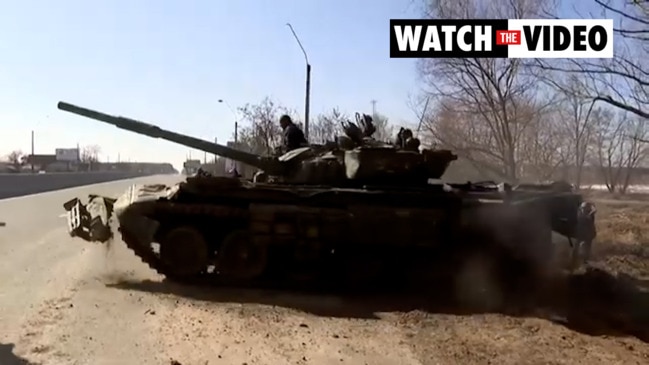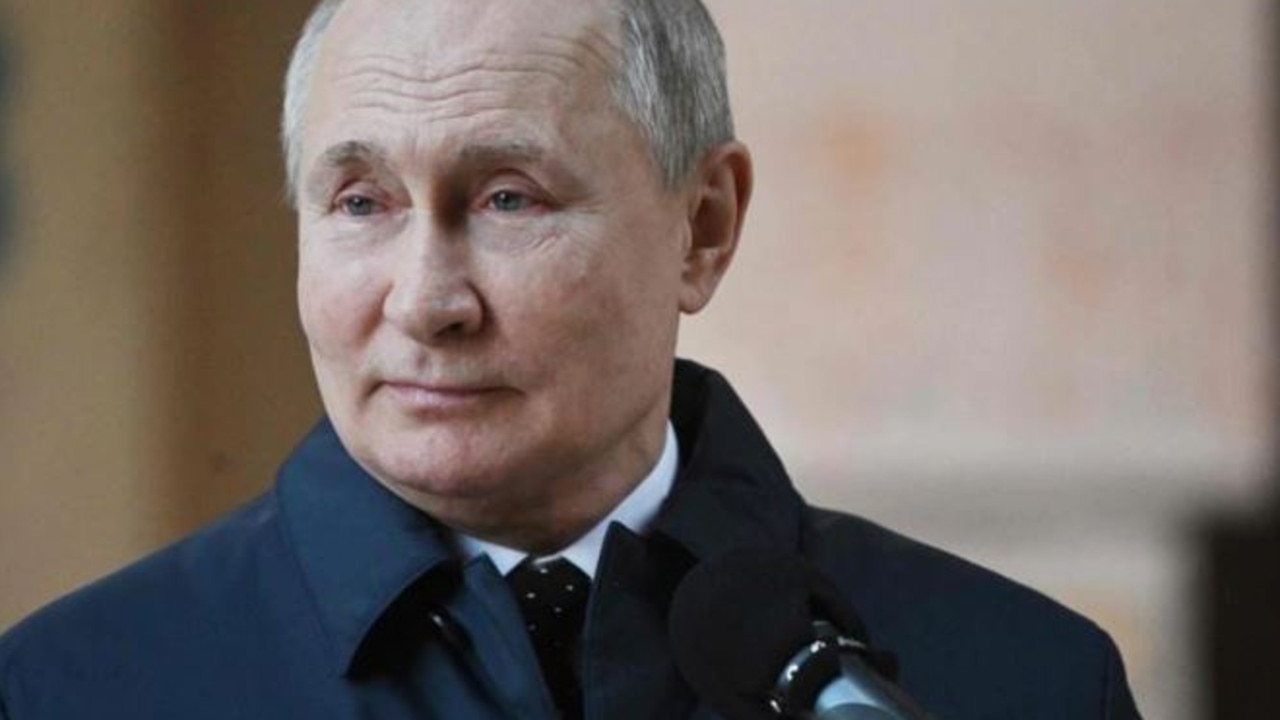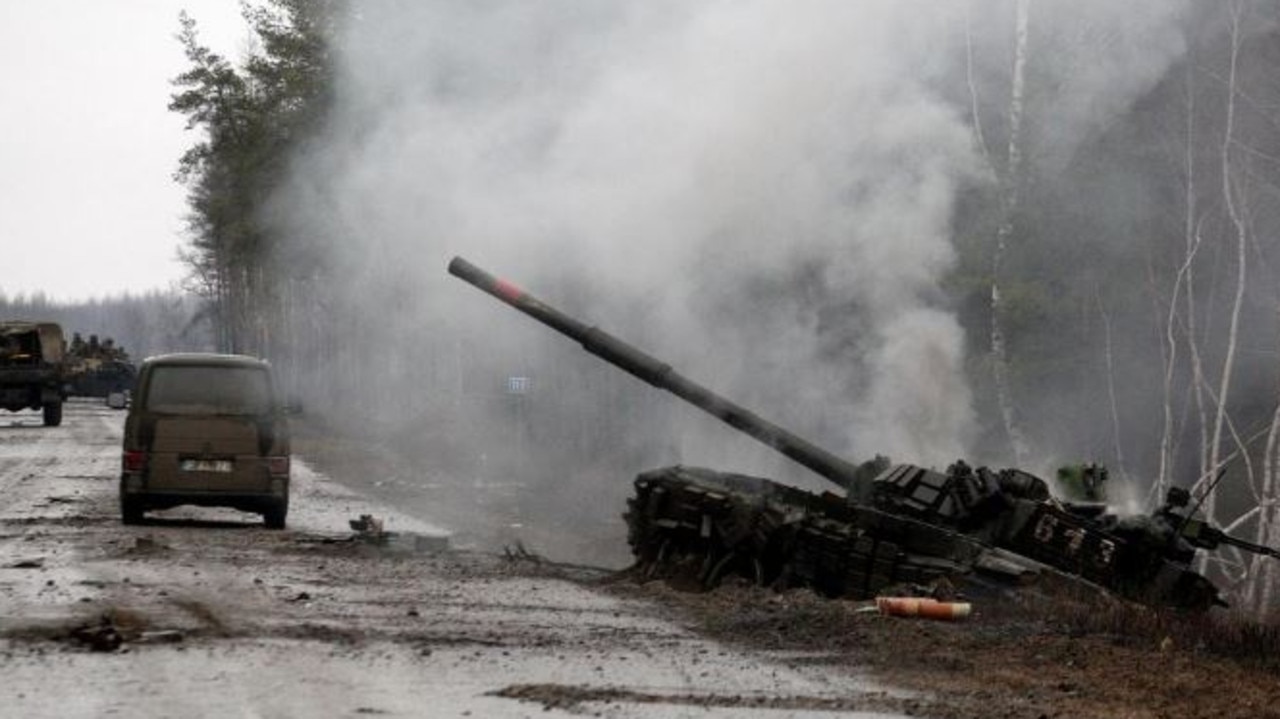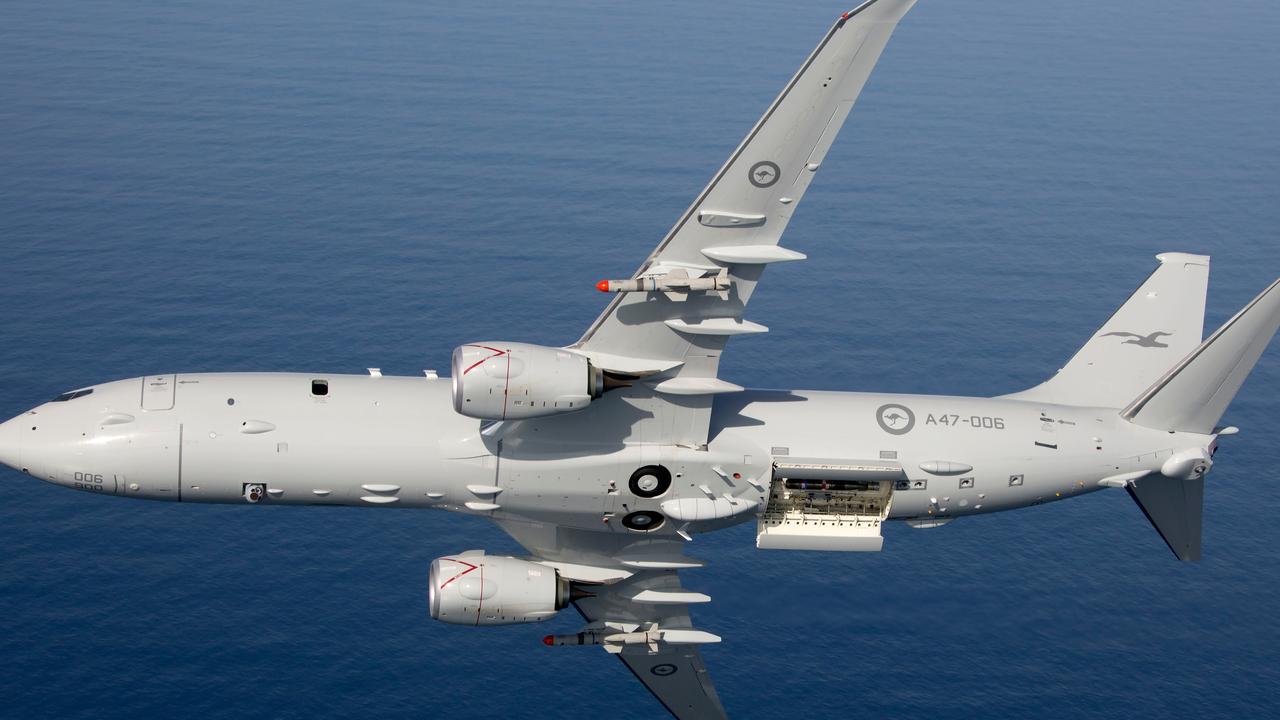Putin can’t keep going like this for long
The war in Ukraine is going badly for Russia, and its morale keeps falling. Meanwhile, Ukraine has a “never-ending” resource Russia can’t match.

Putin can’t keep going like this for long.
His military is losing its best equipment. Its morale is low. It’s having to adopt ever more desperate measures to make tangible progress.
Stream the latest on the invasion of Ukraine from the world’s most trusted news sources with Flash. 25+ news channels in 1 place. New to Flash? Try 1 month free. Offer ends October 31, 2022 >

Retired Lieutenant General Ben Hodges, who is a former commander of US Army forces in Europe, says the invasion has exposed Russia’s shortcomings.
“The weaknesses are being revealed in terms of logistics, terrible maintenance, the fact that they don’t have sergeants like we do that can enforce discipline. That’s where we’re seeing the difference,” he told US media.
“Ukrainians have a never-ending resource called heart, a will to defend their own country, and the Russian invaders that are murdering innocent civilians don’t have that.”
The likelihood is increasing that #Ukrainian forces could fight to a standstill the #Russian ground forces attempting to encircle and take #Kyiv.
— ISW (@TheStudyofWar) March 10, 2022
Read the latest report from @TheStudyofWar and @criticalthreatshttps://t.co/wD6Mq7Lhj3pic.twitter.com/bfBpmtBszg
Whatever the case, the Kremlin appears to be struggling to meet its military aims.
And the costs of conflict keep rising.
“There is a lot of visual evidence of a military disaster: destroyed and abandoned Russian military equipment, killed and captured Russian soldiers, and Russian ground units hapless in front of crowds of Ukrainian civilians,” says European strategic analyst Dr Jean-Baptiste Vilmer.

“As most Russians seemed to have been kept in the dark about this war, to include most Russian troops now fighting in Ukraine, the longer the war lasts, the more likely it becomes that doubt among the populace and army might doom Russia.”
Must watch. Ukrainian artillery fire hunts the Russian armoured vehicles. pic.twitter.com/WRDqGCUBeL
— Ragıp Soylu (@ragipsoylu) March 10, 2022
President Vladimir Putin and his small circle of trusted supporters need a new strategy.
But their options are limited.
“Overall, it is hard to see how Russia can achieve substantial military gains, let alone fulfil its political-strategic goals in Ukraine, as the conflict enters a critical phase,” argues Chatham House Russia analyst Mathieu Boulegue.
“There is growing irritation in the Kremlin that the war is not going according to the initial plan – though no war ever does. This irritation is leading to frustration, which increases risk-taking.”
And that’s just the start of Putin’s problems.
“The question now facing the Russian government is how will the Russian population at large perceive the war if it is long and bloody and the army needs even more cannon fodder,” warns Carnegie Endowment for International Peace researcher Andrei Kolesnikov.
Morale matters
“It is impossible to predict how the war will evolve in the coming weeks. However, it is likely to turn into a war of attrition for all parties,” says Mr Boulegue. “This begs the question of the sustainability of the conflict.”
It’s a matter of food, fuel, ammunition – and morale.
“The lack of concrete results on the ground, the slow advance of the invaders, combined with logistical difficulties and inefficient communication, have led to a growing feeling of frustration among Russian troops,” adds Dr Vilmer.
“Low motivation also limits operational creativity, leaving troops susceptible to making mistakes against highly motivated Ukrainian forces,” Mr Boulegue adds.
They’re not fighting the way they’ve been trained or led to expect.
One reason why Russian fixed-wing aircraft are being shot down is that "cloudy weather is forcing them to fly at lower altitudes."
— Michael Weiss 🌻🇺🇸🇮🇪 (@michaeldweiss) March 9, 2022
Russia has only established limited air superiority over eastern Ukraine. The rest remains mainly under Kyiv’s control. Close air support for ground troops is lacking as Ukraine has preserved parts of its anti-aircraft network and is being equipped with portable missiles by the West.
Electronic (jamming) warfare appears ineffective. As do Russia’s feared cyber attacks.
Then there are the supply problems. Ukraine, Ukrainian has consistently targeted cargo trucks attempting to refuel, re-arm and feed Moscow’s front line troops. Particularly those attempting to besiege Kyiv.
“On the Russian side .. warfighting is constrained by multiple setbacks. Morale and will-to-fight among Russian troops is likely to be affected as operations drag on,” Dr Vilmer adds. “Cases of desertion or abandoned hardware have been observed, although they are far from being a systemic factor.”
Another drone video of Ukrainian artillery smashing Russian tanks.
— Visegrád 24 (@visegrad24) March 10, 2022
🇺🇦 pic.twitter.com/ZsJiUR0cq9
Ukraine, Ukrainian is making much of the apparent desertion of Russian troops. Their most modern tanks and mobile anti-aircraft vehicles are being hauled away by Ukrainian farmers as salvage. Others are being pressed into service against their previous owners.
The full extent – and value of this beyond propaganda – remains to be seen.
But Russian units are getting bogged. Fake signs are misdirecting them. Casualties are mounting. And they’re largely stationary.
“The Kremlin’s fabricated narrative seems increasingly impossible to sustain,” Mr Boulegue says. “Russian soldiers simply do not have a legitimate cause to fight”.
Plan? What plan?
“If you follow the official statements coming from the Russian government, they still maintain that the military operation goes according to schedule,” says Crisis Group Russian foreign policy expert Andrey Kortunov.
“Since we have not seen this schedule, it’s very difficult to judge whether it is right or wrong.”
But analysts agree it is in Putin’s best interests to finish the invasion as quickly as possible.
Bad news: 59% answer “Yes†to the question “Do you support war in Ukraineâ€.
— ÐлекÑей МинÑйло (@alexey_minyaylo) March 9, 2022
Good news: They support an illusion created by propaganda (more on that further). They don’t feel hostility towards Ukrainians (only 2,4% posts contain hostility, 30,4% contain sympathy).
/2 pic.twitter.com/hnBDuIRTLD
“His army has been unable to break Ukraine’s resistance,” says Mr Kolesnikov. “This was unexpected—the war was supposed to be short. Putin is irritated and has already made threats about nuclear weapons. Perhaps this has frightened some Russian elites, but they are not showing it.”
But nor are Russia’s ground troops displaying much skill.
“There is also a glaring gap in their intelligence and logistics networks,” states Indian military think-tank VIF. “Night fighting isn’t being carried out. Precision Guided Missiles (PGM) are showing strong faults in their functioning. Consequently, the quality of Russian technology previously thought to be superlative is increasingly being questioned.”
The issue may not be the equipment, however.
It may be how it is being deployed and used.
It’s a matter of command and control.
“The truth might be in numbers: there are simply not enough Russian troops to achieve a takeover,” says Mr Boulegue.
Russia is believed to have mobilised about 200,000 troops. The Ukrainian army is about the same size.
“No invasion is won on such a disadvantageous ratio of troops, especially as Russia does not seem sufficiently confident to conduct large-scale land warfare and currently prefers smaller spearhead operations.”
Course correction?
One European intelligence official quoted by Foreign Policy journalist Michael Weiss says Russia’s ability to wage a long-term war is suspect.
“Russia doesn’t have the power to keep going like this for very long,” the official said. “Time isn’t on their side, nor do they have a recipe for winning. They can’t win hearts and minds, that’s for sure.”
And that’s not just Ukraine’s hearts and minds.
To anyone saying “There is no way Russia can sustain this,†I am begging you, please go read a book about Russian history.
— Rita Konaev (@RitaKonaev) March 10, 2022
“They’re calling in reservists, offering money and contracts to people to go fight and, as you’ve seen, relying on conscripts,” Foreign Policy quotes their source as saying. “It’s not a popular war in the Russian military from what we’ve seen. People are terrorised, threatened with lawsuits if they decline to fight.”
Just two weeks into Putin’s war, the outcome is becoming increasingly uncertain.
“As Putin’s military becomes increasingly bogged down in a long, violent war that has turned the world overwhelmingly against him, many Russians have yet to understand the full consequences of what has happened,” says Mr Kolesnikov.
“A kind of martial law has been imposed on the Russian elite. And the broader public is being fed a story that looks increasingly like a fable from the dark days of the Soviet Union.”
But that may quickly become a case of the emperor’s new clothes.
“It is much harder to keep reality at bay in the twenty-first century, concludes Mr Kolesnikov.
128/ More than 13,000 Russians have been arrested for protesting the war since Feb. 24 — here's where those arrests have occurred, via @nytgraphics.
— Evan Hill (@evanhill) March 10, 2022
On March 4, Putin signed a law imposing up to a 15-year prison sentence for anyone who spreads "false news" about the military pic.twitter.com/drBJKhuqcs
“With a collapsed currency, growing international isolation, and now, as the Kremlin has admitted, hundreds of actual Russian casualties, it will be difficult for the government to keep telling its story”.
More Coverage
Russian public opinion – as best it can be measured – appears to support Putin, for the moment.
“But that may change as the isolated Russian economy begins to fall apart before our eyes, along with wages, jobs, and access to essential goods and medicines. A month or two into the war, things may look quite different.”
Jamie Seidel is a freelance writer | @JamieSeidel






